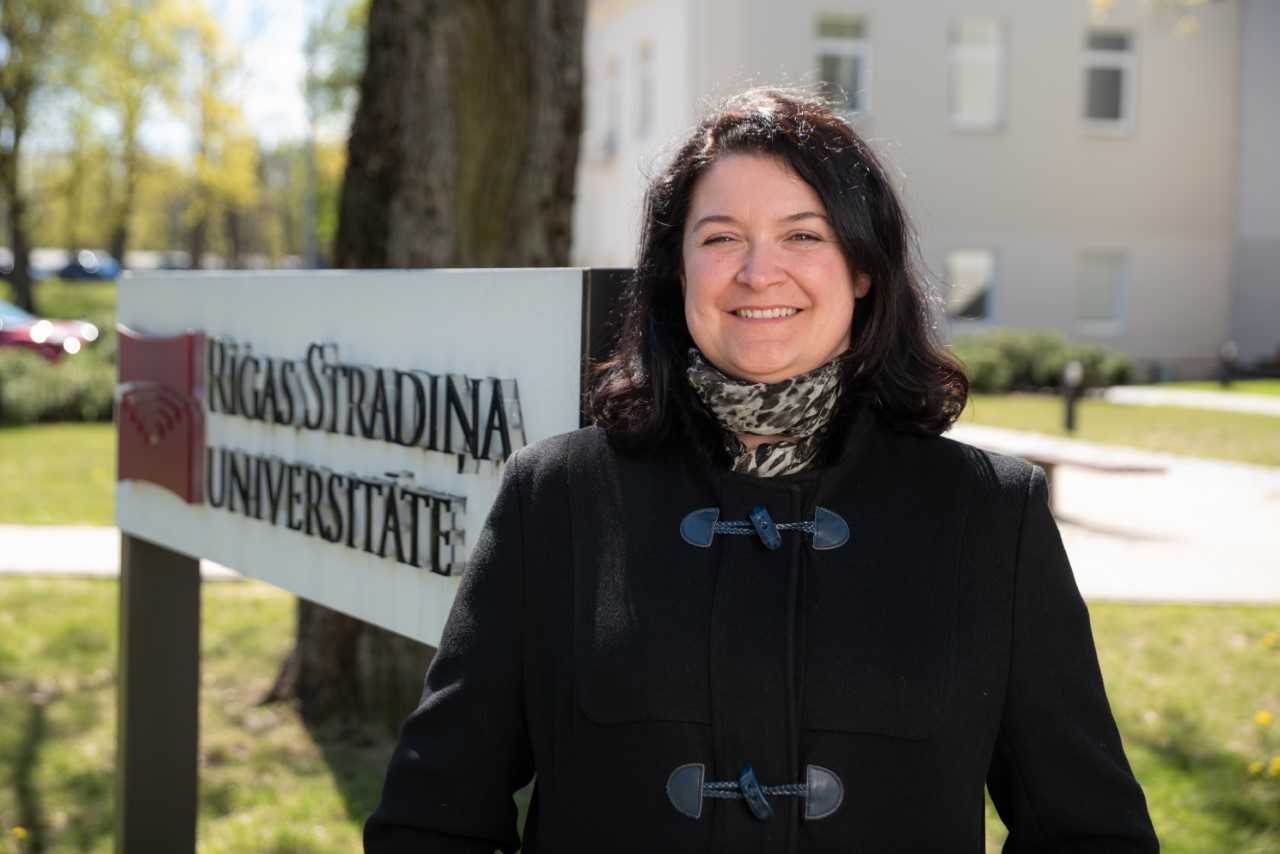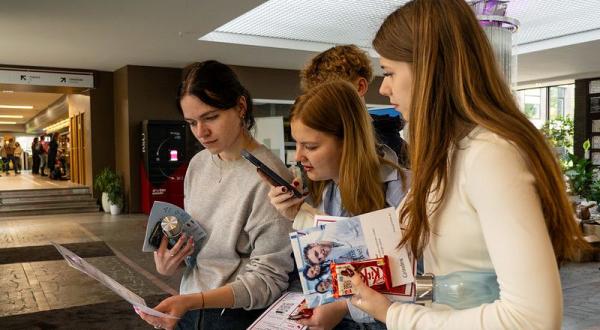Health Communication as a Bridge Between Science and Society
Liene Ņikitina-Zaķe, Doctor of Medicine and Director of the Riga Stradiņš University (RSU) Research Department, has added something new to her list of jobs, roles and challenges – for the second year she is a student of the RSU Health Communication master's study program.
‘The scope of research and studies offered at RSU is distinguished by the fact that it encompasses several interdisciplinary directions, which this programme reflects. We learn to have a panoramic view of knowledge – starting from public health and epidemiology to communication theories and psychology,’ points out Ņikitina-Zaķe.
Why did you choose to study Health Communication?
Approximately six months before being admitted, I was going through the list of study programmes at RSU carefully because I felt like I wanted to study again and study something completely different from medicine. I felt quite at ease in my field, but supervising a genetic testing laboratory required intuition rather than knowledge.
I wanted a challenge. Since I like to try new things and I have an opinion on what to tell different audiences in the field of medicine and how, I decided to start with Health Communication. I have not been disappointed.
You started your studies while running a genetic testing laboratory and you will obtain your master's degree while being the Director of the RSU Research Department. How has the knowledge you acquired helped in your work and research?
I gained a lot of new knowledge and began to introduce this into practice in my laboratory at the beginning of my studies, during my first lectures on health communication and social marketing with Vita Savicka, Head of the study programme. My suspicion that communication is one of the main components determining the success of a business was confirmed. You will reach more people if you manage to give a concise presentation of your product to the right audience at the right time. We upgraded our web page, created a Facebook account, started to address patients and doctors more actively through a variety of popular science publications on genetics, and the results were impressive.
Besides, the lectures in health psychology, sociology, epidemiology, and the communication courses were truly interesting. I don't think I am going to become a health communicator, but the knowledge I acquired is of great use to me. Since I will be defending my master's thesis on factors that affect women's choice not to attend state subsidised mammography screenings next winter, I am already thinking about what study courses to take next: the wide range of courses on offer at RSU is really extensive and everyone will find something that suits them.
What is the most useful knowledge or skills that you have acquired during your studies?
Basic knowledge of health marketing, marketing healthcare institutions, risk and crisis communication, organisation and the economics of healthcare. I must also mention the fundamental principles of the Socratic dialogue taught in the course on critical thinking, which I have been practising actively. I am looking forward to the course on lobbying and protecting interests in health communication.
What are the studies like? What do you think about the lecturers, the content and rhythm of the studies, the cooperation with lecturers and your fellow students?
I have great classmates! Each of us is different, each of us has our own special thing, our own life and work experience. My peers are one of the biggest pluses of the studies!
The courses are taught by RSU experts from different areas. In my opinion, those who developed the study programme have put in a lot of effort into making the programme diverse and interesting both to those who have prior medical experience and to those who come from fields like marketing or management.
The rhythm is compatible with having a job as classes take place on Friday evenings and on Saturdays. As summer approaches it becomes harder to study, but this time we have the most interesting courses in spring, so Saturday classes are very fulfilling.
To whom would you recommend studying Health Communication?
Health communication would be useful for anyone who wants to reflect on the processes in the healthcare sector, and for those who plan to work in health management. The programme would also be valuable to medical professionals, especially those whose professional challenges exceed the limits of the clinic, because health communication involves more than just communicating with patients.





